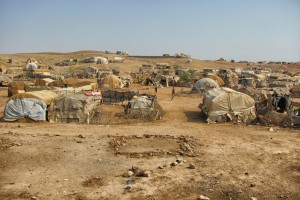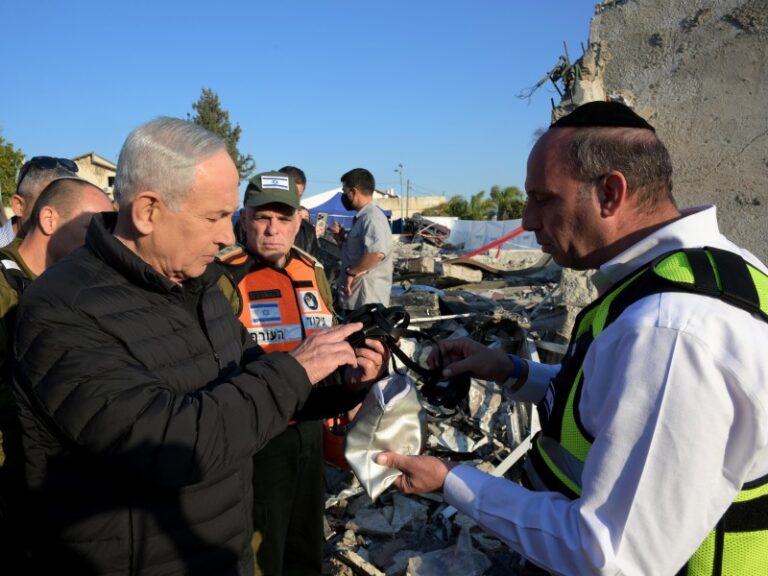
File photo of camps in Eritrea
For the first time UN OHCHR names Eritrean forces’ presence in Tigray, Ethiopia
Addis Ababa/New York: Contrary to the claims of the Ethiopian Prime Minister Abiy Ahmed, who had told the United Nations Secretary‑General that it was going to be a quick operation when the violence in Tigray region started, the military operations are still on after four months there.
The United Nations High Commissioner for Human Rights, Michelle Bachelet, has now accused the “multiple actors in the conflict”, including the Ethiopian National Defence Forces, the Tigray People’s Liberation Front, Eritrean armed forces besides the Amhara Regional Forces and affiliated militias, of serious violations of international human rights law and humanitarian law, possibly amounting to war crimes and crimes against humanity in in Tigray in November last year.
Also read: In face of worsening situation, Ethiopia allows UN agencies to move to Tigray
“The Office has also managed to corroborate information about some of the incidents that occurred in November last year, indicating indiscriminate shelling in Mekelle, Humera and Adigrat towns in Tigray region, and reports of grave human rights violations and abuses including mass killings in Axum, and in Dengelat in central Tigray by Eritrean armed forces,” she stated on March 4, 2021.
Bachelet said she continues to receive distressing report of sexual and gender-based violence, extrajudicial killings, widespread destruction and looting of public and private property by all parties, and stressed the urgent need for an objective, independent assessment of the facts on the ground while referring to reports about continuing fighting in central Tigray.
“With multiple actors in the conflict, blanket denials and finger-pointing, there is a clear need for an objective, independent assessment of these reports – victims and survivors of these violations must not be denied their rights to the truth and to justice. We urge the Government of Ethiopia to grant my Office and other independent monitors access to the Tigray region, with a view to establishing the facts and contributing to accountability, regardless of the affiliation of perpetrators,” Bachelet said.
Bachelet also expressed concern at detentions this week in Tigray of journalists and translators working for local and international media. While the journalists have now been released, there have been worrying remarks by a Government official that those responsible for “misleading international media” would be held responsible.
“Victims and witnesses of human rights violations and abuses must not be hindered from sharing their testimony for fear of reprisals,” the High Commissioner said.
What was significant in Bachelet’s statement was that for the first time the UN had pointed fingers at the Eritrean forces, and said the reports that she received were corroborated.
Till now the UN had maintained that it had no proof of whether there were Eritreans forces present in the region. To a pointed question on whether in these four months and with these persistent allegations of Eritrean forces, the UN Secretary-General António Guterres ever spoke to the President of Eritrea, Stéphane Dujarric, spokesperson for the Secretary-General, said: “I’m not aware that the Secretary‑General has spoken to the President of Eritrea.” He however was quick to add: “Listen, we condemn… The Secretary‑General is working on all the possible diplomacy that he can.
The office of the UN Secretary-General António Guterres informed last night (IST) that the Secretary-General though had had “a number of conversations” with the Ethiopian Prime Minister Abiy in the last few months, urging the latter to increase the humanitarian access, stop the fighting, and work on issues of reconciliation. “We continue to be very concerned by the overall the situation. I think the headlines that we’ve seen about human rights violations, mass killings, sexual violence is extremely concerning,” Dujarric, said.
Official estimates in Addis Ababa suggest that at least 4.5 million people in the region need assistance but many in rural areas remain inaccessible and food security is a concern. Access to water, hygiene and sanitation services are largely disrupted across Tigray, increasing the risk of disease outbreaks, including water-borne diseases, measles and COVID-19. Health services are also disrupted, with only 22 per cent of the 205 health facilities in Tigray being fully functional.
Mark Lowcock, the Emergency Relief Coordinator, who briefed the UN Security Council on the current humanitarian situation in Ethiopia, particularly the Tigray region, on March 4, 2021, emphasised the need to “dramatically scale up humanitarian assistance” throughout the province by facilitating independent need assessments; deploying humanitarian staff throughout the province; restoring basic communications and banking services . He also called for increased urgent funding for humanitarian operations.
– global bihari bureau






I found your weblog site on google and test a few of your early posts. Continue to keep up the superb operate. I simply additional up your RSS feed to my MSN News Reader. Seeking forward to reading extra from you later on!…